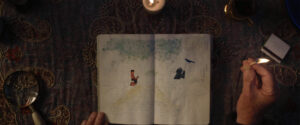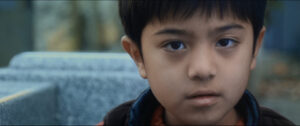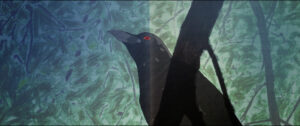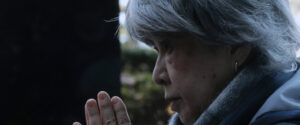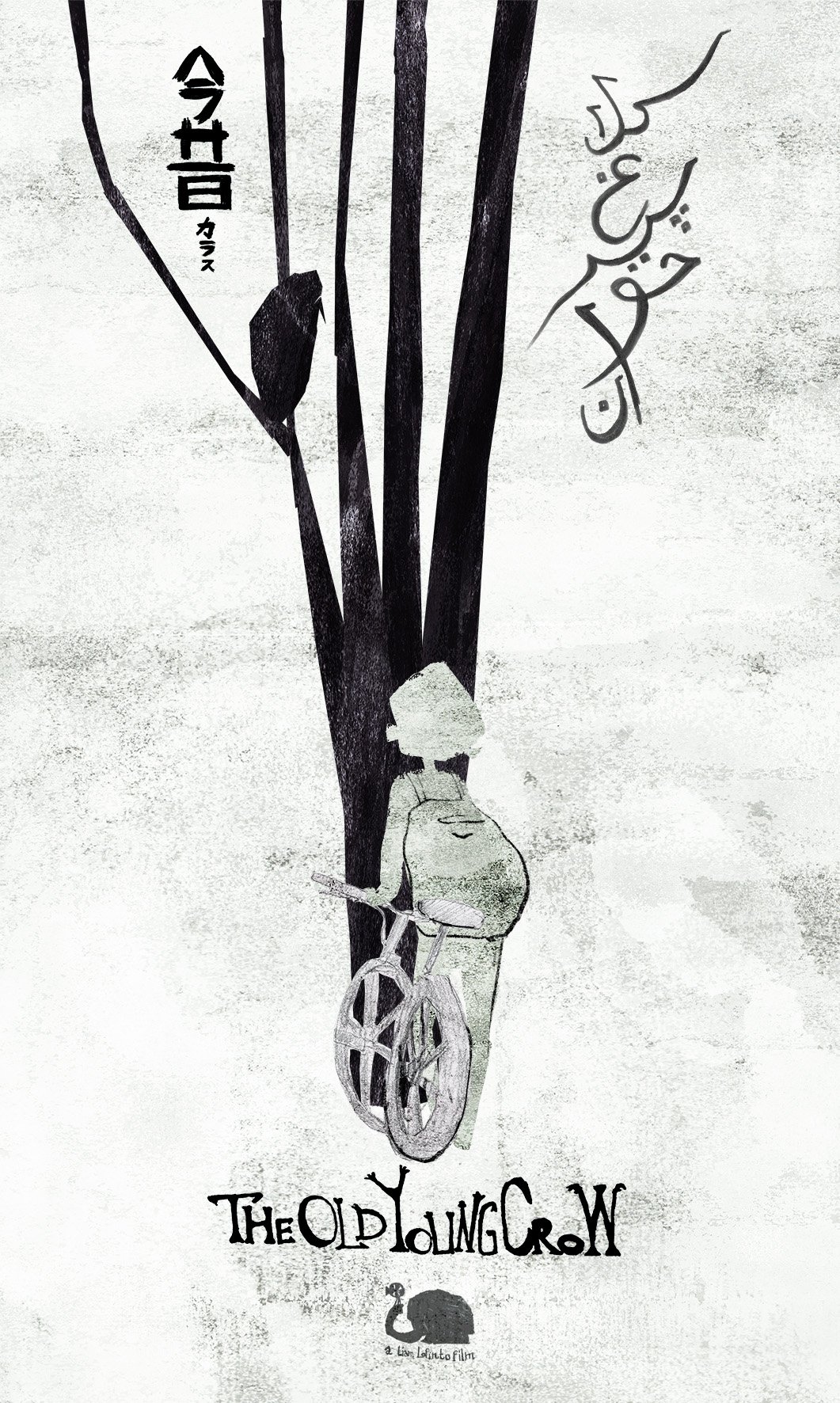
Oscar Qualifying Short Film Review “The Old Young Crow”
NO TRAILER CURRENTLY AVAILABLE
First, the Recap:
Our escapes from that which has the tendency to scare or at minimum trouble us can take on any myriad of forms. We seek to assuage our doubts and apprehensions through mediums that allow our mind and spirit to be free from tumult and instead embrace a peace we require. In this solace, sometimes, we might even find ourselves discovering new bonds with others that was unforeseen, and that can even alter our lives forever. Now in his older years, Iranian born Mehrdad (Hassan Shahbazi) recounts his move to Tokyo as a young boy (Naoto Shibata), caught in a foreign place he has tried to adapt to but still finds daunting. Finding his liberation through artwork, he randomly meets an older woman named Chiyo (Keiko Yamashita) in the Tokyo graveyard he frequents, forming a unique friendship that unexpectedly transcends reality and his notions about life itself.
Next, my Mind:
The burdens of immigration, adaptation to the enigmatic cultural contrasts being experienced due to it, finding one’s place to abscond from it all, discovering what provides us inner solace, and a journey into otherworldly realms all collide and yet fluidly meld together to form a heartening, reflective narrative of youth, artistic expression, and looking back at what impacts us the most though this Oscar qualifying 12-minute short film from writer/director/producer/editor/cinematographer Liam LoPinto, executive producers Bill LoPinto and Mamak Shahbazi, plus associate producers Shohreh Golparian, Byron Gould, Keisuke Sakuma, and Keiko Yamashita. Ultimately told through a flashback-based format, what I found immediately engaging was the film’s creative utilization of both live action and animated elements, which just gave the film overall a uniquely executed tone and, at least for this critic, additional visual depth to the events addressed.
Founded on a premise that sees an now-older man looking back on his immigrant childhood in Tokyo, the search for his place in a foreign atmosphere, his means to escape from the cacophony of life, and the old woman whose friendship becomes both symbolic and endearing to an accompanying existential adventure he then gets immersed in, the film takes on its themes as mentioned above with clever employment of real life, animation, and the fantastical in a manner that harkens back to a more fairy tale style presentation, but one that actually leaves you contemplating at times precisely WHICH world you are witnessing, allowing the imagination to take over while still feeling grounded IN reality. The exploration of the stirring beauty that comes from basic human interaction and then relationship, with all that we can learn from someone who is “far apart” from us in age, gender, etc, is magnificent and SO needed in our world today that seems so separated.
But, another of the key facets I found making a tangibly impactful impression here is through the film’s narrative showcasing how art can be such a conspicuously inspiring, cathartic, inwardly emancipating conduit through its ability to let everything we’re confronting find a more constructive way out, whether we’re encountering our “bad days”, “good days”, and everything in-between while also, in this story’s case, becoming a unifying aspect between two people from totally different worlds, sharing memories past and present, bound together by drawn images that speak so deeply to personal odysseys or recalling those we’ve lost. Passing this along and the lessons we can learn from one another is paramount in the direction this tale conveyed takes, and as mentioned above, the supernatural intertwined into it all makes events seem dreamlike yet still credible, touching, and even haunting.
Likewise, the film’s visual approach, while something that in itself has been done aplenty, still finds its way to capture you as the viewer in depictions of how a young boy’s perspectives of immigrating from one place to somewhere totally contrasting from what he’s known to date has both fascinated and frightened him, causing his choice to find quite the stark setting to let his artwork shine forth but that also gains him an unanticipated bond that will shape his view of things forever. The animated sequences then take on their own ever-fluctuating life that emphasizes the aforementioned dream-like state of events while drawing you into that more mythological/legendary mindset the narrative elicits, leading you down an uncertain yet steady road towards the film’s finale that firmly brings about one person’s ongoing recollections into wholly compelling and evocative focus and purpose.
Shibata now becomes the latest in a string of child actors I’ve had the opportunity to see on screen that KEEP surprising me in illustrating a maturity that far surpasses their ages, and here through his role as the younger version of Mehrdad, who as a boy had to immigrate from Iran to Tokyo and had to face the blatant magnitude of change in social and cultural realities this presented. Having few friends, Mehrdad’s method of coping comes from “hiding out” in a local cemetery near his school and producing artwork via sketches that exhibit all he’s having to deal with. Companionship being a particular crow who always seems to perch on a headstone near him, the locale also yields meeting an old woman visiting a grave that subsequently engenders a wonderful accord between them that will take Mehrdad on a wondrous, even divine, voyage which inexorably shapes his thinking for the rest of his life.
It’s the completely believable degree of innocent, inquisitive, heartbreaking, and yet inspired attitude that Shibata brings about in his performance that makes the character so easy to relate to and empathize with. Yamashita likewise has a presence that ushers in an air of plausible actuality and lightly ominous mystery through her role as Chiyo, an old woman whom visits the graveyard Mehrdad goes for his “away” time, soon noticing the young boy and nurturing a friendship with him that will alter them both as she weaves a story of her life and someone close to her she’d lost far too soon. But, even as Mehrdad relishes the building connection he has with Chiyo, things will take a turn through the path she leads him down that will become part inexplicable, part slightly jarring, yet all fantastically eye-opening for him, and the grandparent/mentor/confidant mentality Yamashita infuses into the character so befits the story and intent here.
Primary supporting appearances are found in Shahbazi as the older incarnation of Mehrdad who acts as the film’s (mostly) unseen narrator, literally the hands that guide us through a sketchbook journal which chronicles the narrative being told., and Hitoshi Hinomizu as a temple priest whom the young Mehrdad has a conversation with that becomes the catalyst for revelation in regard to his relationship with Chiyo. So, in total, “The Old Young Crow” sees the manifestation of human resilience to change, the potent energy of the creative mind, our ability to cope in good ways with that which challenges us, the need to be open to newly formed bonds we didn’t anticipate, and the undeniable reality of events beyond our immediate comprehension, all so we might be reminded that by whatever design they may take shape, it’s always a good decision to be available to the extraordinary and what it can teach us.
STAR RATING (out of 5):
As always, this is all for your consideration and comment. Until next time, thank you for reading!
